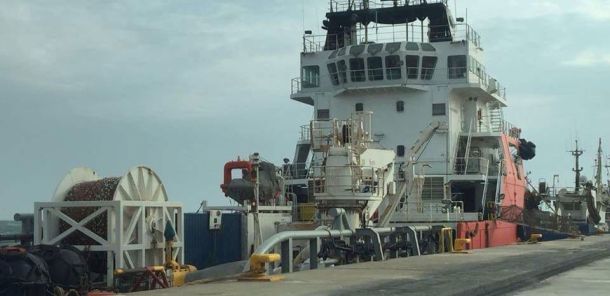WSRW raises Western Saharan oil development at UN Fourth Committee
WSRW has asked the United Nations’ Special Political and Decolonization Committee (Fourth Committee) to report on Morocco's petroleum exploration in occupied Western Sahara to the General Assembly.
Published 13 October 2014
SUBMISSION TO THE UNITED NATIONS GENERAL ASSEMBLY
SPECIAL POLITICAL AND DECOLONIZATION COMMITTEE (FOURTH COMMITTEE)
NEW YORK, OCTOBER 2014
THE QUESTION OF WESTERN SAHARA AND ITS NATURAL RESOURCES
Western Sahara Resource Watch
Brussels
YOUR EXCELLENCIES,
I thank you for the privilege to appear today. Western Sahara Resource Watch is grateful for this opportunity and we thank you for considering the question of Western Sahara again this year.
In past years, Western Sahara Resource Watch has made submissions to this Committee about natural resources in Western Sahara. We have called attention to problems of the taking of the fishery and of the phosphate mineral rock reserves in occupied Western Sahara. We have also suggested from time to time that the United Nations assume the administration and oversight of resource development in Western Sahara, as it did during the time of the apartheid occupation of Namibia. Western Sahara Resource Watch has also endeavoured to present credible information about the effects of the taking of resources from occupied Western Sahara upon the Saharawi people’s right to self-determination.
Everyone present today can understand what those effects are. The occupying state, Morocco, is enriched by the development and export of resources from the territory. As you may know from our reports about the fishery and phosphate exports, Morocco enjoyed annual revenues of nearly $400 million from the two during the past year. The other serious effect of the export of resources in that is serves as a pretext for Morocco’s continuing annexation of Western Sahara. So-called economic development is suggested as being necessary for the territory, and that activity allows Morocco to settle its own population into the territory, which is a violation of the Fourth Geneva Convention of 1949.
Two undeniable facts should be recalled at this point. The first is that International Court of Justice definitively pronounced on whether Morocco had any territorial claim to Western Sahara, in its October 1975 advisory opinion to the General Assembly. Morocco – and also then Mauritania – did not. Mauritania, as we know, would give up its claims to the territory and admit the wrongfulness of its 1975 invasion in a later peace agreement with representatives of the Saharawi people.
Second, the Saharawi people of Western Sahara were the only original inhabitants of the territory when Spain agreed that they would be able to realize their self-determination. So when we speak of the “people of Western Sahara” and their natural resources, what must be meant is the Saharawi people, and not a mixed population of illegally introduced settlers.
This year, Western Sahara Resource Watch wishes to bring to your attention the very serious problem of petroleum exploration and development in the coastal waters of occupied Western Sahara. As we meet here today, a recently constructed large drill ship, the motor vessel Atwood Achiever, is making its way to Western Sahara. That ship, chartered by the United States petroleum exploration company Kosmos Energy Limited, will begin test well drilling on the mid-coast of the territory in several weeks’ time.
As with oil in the seabed of occupied East Timor, the search for petroleum in Western Sahara presents significant problems. The Saharawi people are on record as noting that they will not tangibly benefit from oil production and have been emphatic – through their government, civil society organizations and individuals – that they oppose it. Their concern is environmental, that the petroleum may not be available to them in the future, and that the industrial and economic activity to result from oil production will only entrench an illegal and violent occupation.
Western Sahara Resource Watch respectfully requests that the Committee, in its pending report to the General Assembly, make note of the problem of petroleum exploration and production in Western Sahara, and firmly condemn such activity.
Thank you.
News
Kosmos and Cairn have pulled out of Western Sahara
17 years of US private company engagement in exploring the oil potential of Western Sahara has come to an end.
07 February 2018
Kosmos surveying oil potential near Dakhla again?
Over the past 24 hours, WSRW has observed a resumed seabed exploration north of Dakhla, in the block operated by American oil company Kosmos Energy in collaboration with Scotland's Cairn Energy.
26 October 2017
Kosmos/Cairn oil study in occupied waters has ended
The seismic study programme of Kosmos Energy and Cairn Energy offshore occupied Western Sahara ended on 12 April.
15 April 2017
Here is Kosmos Energy's supply vessel in occupied Western Sahara
Kosmos and Cairn Energy are exploring for oil offshore Western Sahara, occupied by Morocco. This photo taken yesterday shows one of their supply vessels.
28 March 2017



